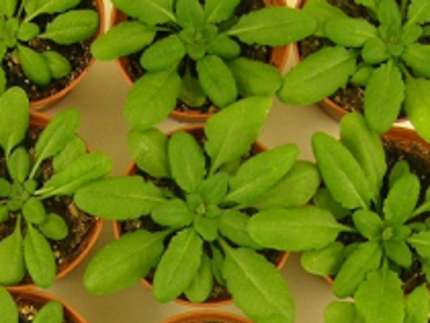Gene Regulatory Networks
Transcription factors (TFs) are key regulators in all organisms; they bind to cis-regulatory elements in the promoters of their target genes and activate or repress their activity. Although functions of many TFs have been described in the past, the gene regulatory networks (GRNs) they control are virtually unknown for most of them. We are using a wide spectrum of molecular and genomics technologies to unravel key GRNs in plants. Our focus is on TFs that control leaf growth, aging and senescence, and the response to abiotic stress.
Molecular mechanisms of abiotic stress-induced senescence in plants
Senescence initiation and progression are regulated by developmental and environmental cues. In general, under continuous stress conditions plants shorten their life span by early flowering and precocious senescence to escape severe stress and guarantee a minimum fitness for the next generation. The complexity of the crosstalk between senescence and abiotic stress responses suggests that many important regulatory players are still unknown. In this project we focus on transcription factors and gene regulatory networks governing both, abiotic stress responses and senescence. The identification of the regulatory mechanisms that integrate signal transduction of abiotic stress responses to precocious senescence pathways will allow a better management of senescence and abiotic stress responses with large potential applications in agriculture and ecology.
For more information contact Prof. B. Müller-Röber.
Stress response and stress mitigation
Many abiotic stresses lead to oxidative stress in plant cells. We investigate gene(s) in Arabidopsis thaliana, for which molecular changes result in tolerance to oxidative stress. Our approaches include to decipher the signalling networks of those genes in Arabidopsis thaliana, via transcriptome and metabolome analysis, and the identification of cellular compounds which interact with these genes and proteins.
Relevant in this work is also to investigate effects of biostimulants to improve growth under stress conditions and induce protective mechanisms against abiotic stresses. One example is Super Fifty®, developed by BioAtlantis from seaweed species. To elucidate the priming and protective effect of Super Fifty® at the molecular level is one part of the work.
For more information contact Prof. B. Müller-Röber.
Inforadio RBB Podcast "Gestresste Pflanzen können nicht weglaufen" 13th Nov 2018
Related running projects
- Development of innovative priming technologies safeguarding yield security in soft fruit crops through a cutting-edge technological approach Coordinator: CUT Cyprus
- The Department, especially the Synthetic Biology group is involved in the PlantaSYST project. PlantaSYST receives funding from EU Horizon 2020 SGA-CSA No664621 and No739582 under FPA No.664620.
- PlantaSYST is contributing to the establishment of the Center of Plant Systems Biology and Biotechnology (CPSBB).
- Find out more about the project.


